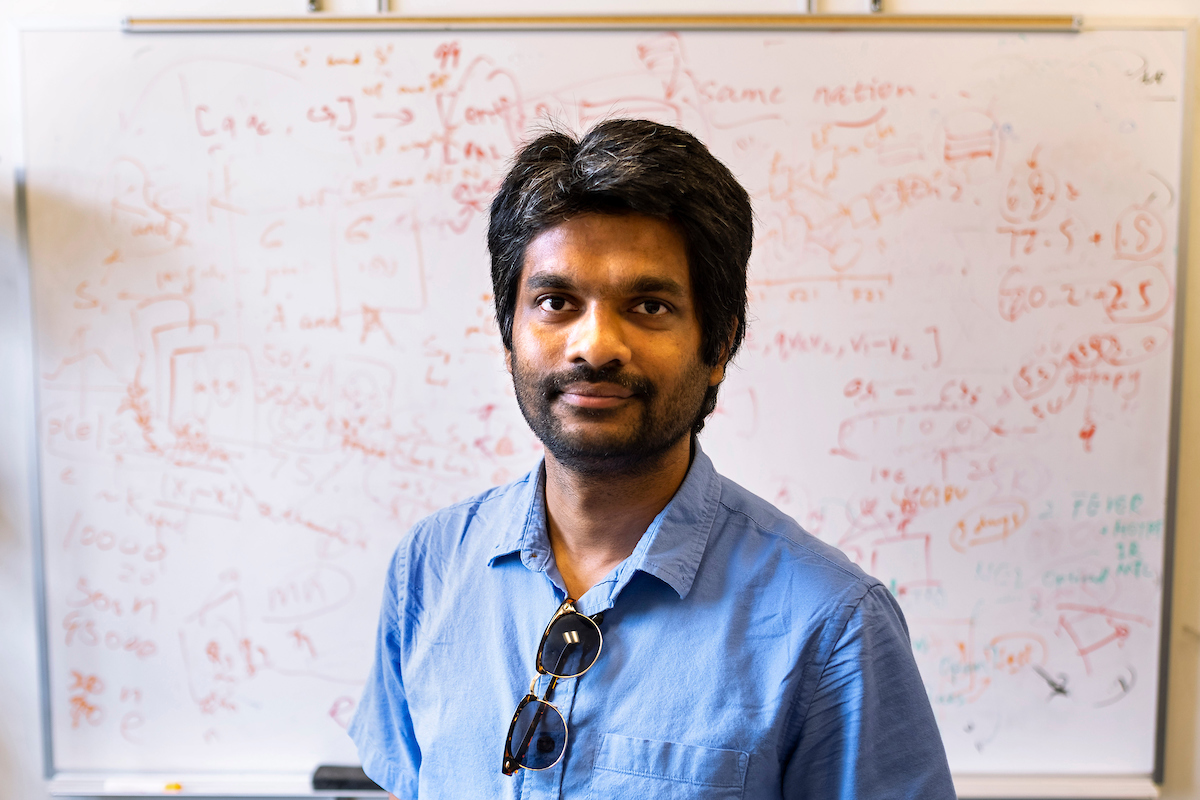Carolina joins new NSF institute to enhance artificial intelligence tools for a more equitable, inclusive classroom experience
Through the new Artificial Intelligence Institute for Engaged Learning, Carolina researchers will guide innovations in educational AI from creation to application.

The University of North Carolina at Chapel Hill will innovate and advance artificial intelligence to improve learning tools as a partner in the National Science Foundation’s new Artificial Intelligence Institute for Engaged Learning.
The institute launched today with a five-year, $20 million grant from the NSF, bringing together leading researchers and education experts from Carolina, lead partner North Carolina State University, Indiana University, Vanderbilt University and educational non-profit Digital Promise to make these AI tools more accessible.
The Institute’s researchers will create more equitable, inclusive educational experiences through advanced artificial intelligence tools. With a $4.5 million portion of the NSF grant, Carolina researchers will work to develop AI tools such as natural language processing, computer vision and machine learning for use in the classroom. The collaborative teams will also improve those tools through thoughtful design and a focus on diversity, equity and inclusion.
“The work Carolina’s world-class researchers are doing alongside these partners embodies a spirit of collaboration for the public good,” said Chancellor Kevin M. Guskiewicz. “I’m excited to see what innovations this team develops and how it enhances learning for the children of North Carolina and beyond.”

Mohit Bansal is the John R. and Louise S. Parker Associate Professor in Computer Science and Carolina’s lead co-principal investigator at the National Science Foundation’s Artificial Intelligence Institute for Engaged Learning. (Jon Gardiner/UNC-Chapel Hill)
As Vice Chancellor of Research Terry Magnuson explained, Carolina’s role in the institute is critical: Carolina researchers will develop advanced educational and analytical AI tools to move the work from iteration to real-world application. “Mohit Bansal and his team are leading the foundational artificial intelligence work for this NSF-AI institute, which will define and drive the strong impact and usefulness of the diverse educational AI tools,” said Magnuson.
The new institute will create a virtual environment with AI characters and analytical tools for educators to help foster a creative and communicative learning environment for students. Researchers will design a story-based environment where students can interact with engaging AI characters that communicate with speech, facial expression, posture and more. The analytical tools will allow educators to customize scenarios as needed, making a more tailored approach to individual students and their learning style and capability. All these educational AI tools will be informed by ethical considerations of fairness, accountability, transparency, trust and privacy.
“We are excited to partner with fellow researchers and experts in this new NSF-AI Institute. This partnership is a unique opportunity to develop groundbreaking, foundational AI innovations for improved, inclusive education and human learning”, said Mohit Bansal, the John R. and Louise S. Parker Associate Professor in Computer Science and the lead co-principal investigator at Carolina. Bansal will oversee all the core AI research in the new NSF-AI institute. Three additional faculty members from the College of Arts & Sciences’ computer science department will work in the new institute as senior personnel: Snigdha Chaturvedi, Colin Raffel and Shashank Srivastava.
“I am delighted to announce the establishment of new NSF National AI Research Institutes as we look to expand into all 50 states,” said National Science Foundation Director Sethuraman Panchanathan. “These institutes are hubs for academia, industry and government to accelerate discovery and innovation in AI. Inspiring talent and ideas everywhere in this important area will lead to new capabilities that improve our lives from medicine to entertainment to transportation and cybersecurity and position us in the vanguard of competitiveness and prosperity.”




